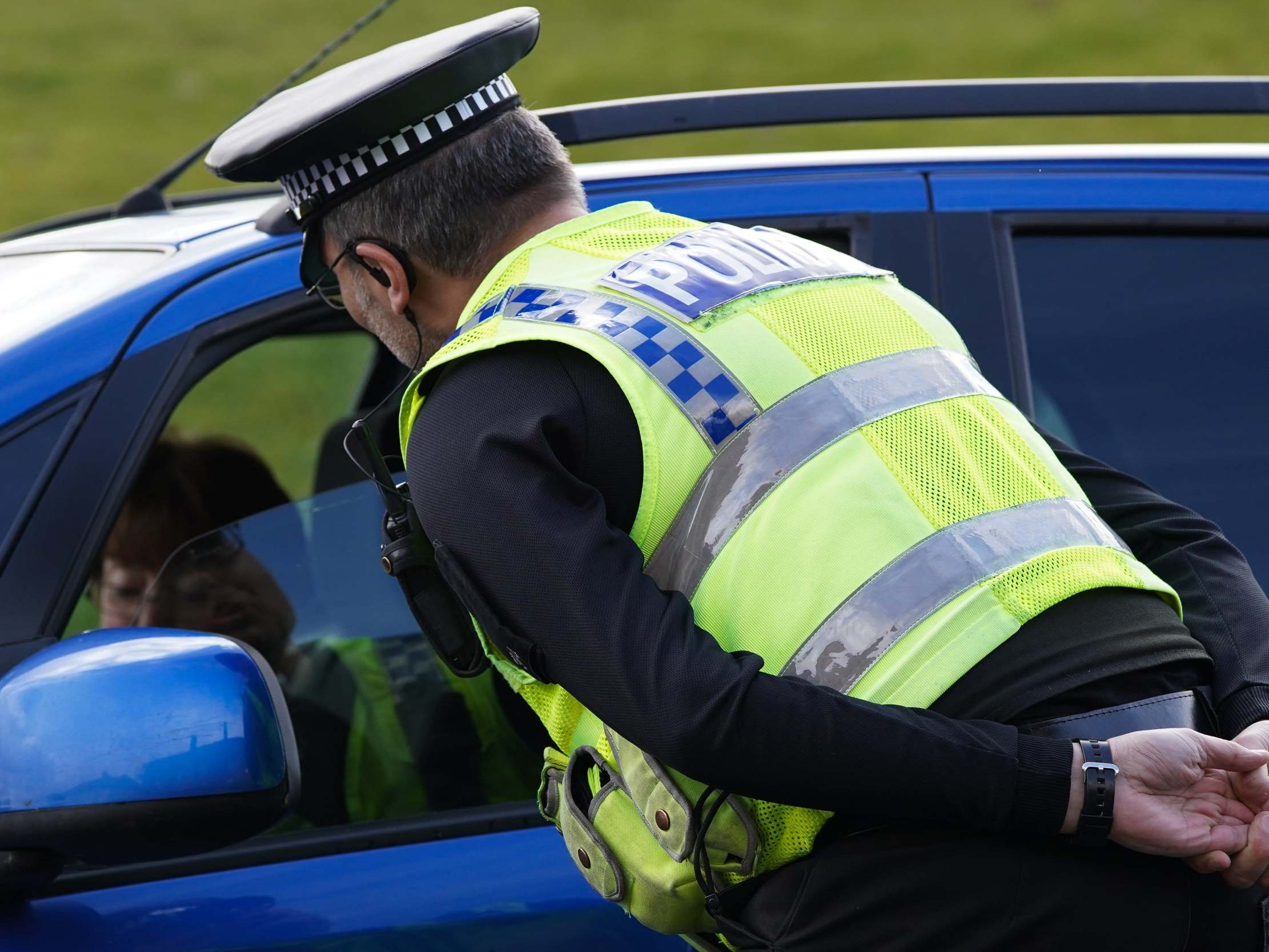Coronavirus: Police told to use ‘exceptional powers for exceptional circumstances only’ after woman wrongly fined £660
Guidance distributed after misuse of Coronavirus Act 2020 caused miscarriage of justice
Police have been told to use “exceptional powers for exceptional circumstances only” during the coronavirus outbreak, following a miscarriage of justice.
Guidance issued to officers nationwide has been published after a woman was wrongly charged under new laws and fined £660.
The case came amid confusion over the extent of the new powers afforded to police, and criticism of the way some forces have been imposing new lockdown rules.
An official document drawn up by the College of Policing and National Police Chiefs’ Council (NPCC) states that the Coronavirus Act 2020 is meant to support public health workers.
“[These are] exceptional powers for exceptional circumstances only,” it says. “We don’t expect you to use these powers in the course of ordinary duty and you really shouldn’t unless asked by a public health officer.”
The law, which is separate from the Health Protection Regulations that enforce the UK lockdown, only applies to “potentially infectious persons”.
It gives medics the power to direct people to undergo coronavirus screening, and enables police to enforce their instructions and to detain or move people by force if necessary.
Schedule 21 of the Coronavirus Act creates an offence of “failing to without reasonable excuse to comply with any direction, reasonable instruction, requirement or restriction” imposed as part of the act.
The provision was wrongly used to prosecute a woman who had been “loitering between platforms” at Newcastle Central station.
Marie Dinou, 41, was held in custody for two days after being detained by British Transport Police (BTP) officers on Saturday.
The force said she was arrested after refusing to give her name or reasons for travel – but her actions were not an offence under the Coronavirus Act.
Despite the error, a district judge at North Tyneside Magistrates’ Court convicted her on Monday – after ejecting her from the hearing – and ordered her to pay more than £800 in a fine and costs.
On Thursday, BTP admitted it had used the wrong section of the law to charge Ms Dinou and that the case “shouldn’t have happened”.
The conviction will be formally quashed at a new hearing.
The police guidance, which was written before the Newcastle incident, stresses that the Coronavirus Act is “public health led” and aims to support the testing and treatment of coronavirus, and slow its spread.
It says officers must obtain advice from healthcare workers before exercising the powers against anyone suspected of being infectious, adding: “Coronavirus symptoms can be vague and it is important we do not turn to these powers in haste if we see someone with a cough or temperature.”
The guidance says: “We cannot impress on you strongly enough, that these powers are for use in conjunction with public health ... we do not envisage you ever acting without their express request or on their advice.”
The Coronavirus Act came into force on 25 March and had been drafted at a time when the threat was perceived to mainly come from people entering the UK from abroad.
But its provisions were rapidly overtaken by events as coronavirus transmission spread within Britain, and the mandatory testing envisaged in the law has not yet taken place.

The Coronavirus Act is expected to be used less frequently than the separate Public Health Regulations, which allow police to hand out £60 fines to people who leave their homes “without reasonable excuse”.
Gaps between the legal regulations and the government’s guidance, which is more strict in some respects, has sparked confusion.
Following a series of controversies about alleged heavy-handedness, including a force that filmed walkers with drones and another that set up roadblocks, officers were told to use fines and arrests as a “last resort”.
Chief Constable Charlie Hall, the NPCC lead for operations, said the “vast majority of the public” are abiding by government guidance and the law by staying at home.
“It is important to emphasise to our officers and staff that these new powers are there to support health colleagues and are only ever likely to be used in exceptional circumstances,” he added.
“We have tried to anticipate the questions and concerns that our officers and staff will undoubtedly have on these powers to ensure they are used appropriately.”
Chief Constable Mike Cunningham, chief executive of the College of Policing, said the new powers were to support the NHS.
He added: “These are unprecedented times and we are clear that these powers are only to be used in exceptional circumstances and only on the advice or direction of healthcare professionals.
“The police will continue to work with communities to help save lives and I am grateful to all officers and staff who are putting themselves at risk during this time.”
Join our commenting forum
Join thought-provoking conversations, follow other Independent readers and see their replies
Comments
Bookmark popover
Removed from bookmarks